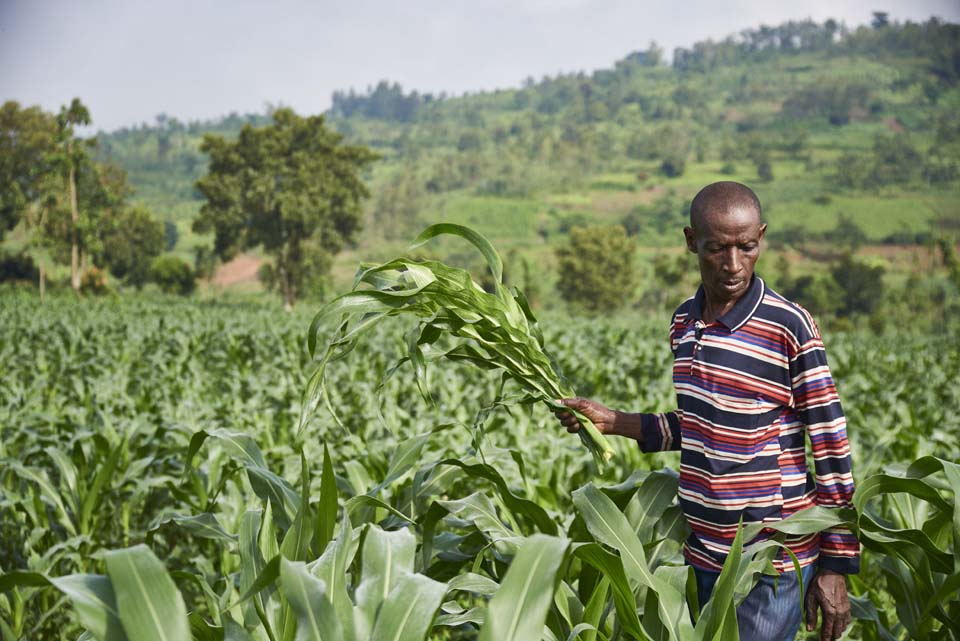

Farmer Cooperatives Improve Food Security in Rwanda
For years, Esaïe Habiyakare, a farmer in Rwanda’s eastern Ngoma district, grew maize and other crops on his small plot of fertile land. Tilling soil and planting seeds alongside neighbors, Esaïe helped feed local families and sold his produce at markets surrounding the village. But he never seemed to get ahead.
Thanks to the temperate tropical highland climate in Rwanda, seasonal harvests were reliable. But Esaïe and his fellow farmers still struggled with persistent poverty.
“The problem is that when you work alone on your plot of land, you don’t have any bargaining power, or any power in producing larger quantities of crops,” says Esaïe, referring to the lower prices he received for produce he sold on the market. “In a co-op, working together means the production increases and you have more bargaining power in the market.”

Esaïe Habiyakare, president of Koabika maize cooperative, walks through his maize fields in Rwanda.
Photo by Samuel Phelps/CRS
Together with 80 other farmers, Esaïe formed a cooperative named Koabika. The group hopes that by prioritizing corn and combining their efforts across 180 acres of farmland, they’ll gain considerable market strength.
“In a cooperative, working together, the production increases and you have more bargaining power in the market,” says Esaïe.
“With land consolidation, farmers can work together with the same techniques and synchronized planting and harvest times, this results in larger crops,” says Yannick Ndoli, project coordinator with the Farmer-to-Farmer program. “If people are joining cooperatives and understand the principles and their responsibilities, the profit will increase by them working together,”says Yannick.
Catholic Relief Services is a host organization to the Farmer-to-Farmer Program, which promotes sustainable economic growth, food security, and agricultural development worldwide. Volunteer technical assistance from U.S. farmers, agribusinesses, cooperatives, and universities helps developing countries to improve productivity, access new markets, and conserve environmental and natural resources. This people-to-people exchange promotes international goodwill, understanding of U.S. foreign assistance programs, and private involvement in development activities.
CRS Farmer-to-Farmer volunteers work with farmers like Esaïe to increase production, improve cooperative governance, business management and profitability, address environmental and natural resource management challenges and improve incomes, thereby contributing to rapid economic growth while conserving environmental and natural resources. Farmers are also trained in management and governance as part of the program.
“When production increases we sell more. By selling more, we increase the income of each farmer,” says Esaïe. “By having much more income, each member can afford to pay medical costs and school fees for the family. It can hopefully change our lives and get us out of poverty. We want to get out of poverty.”

